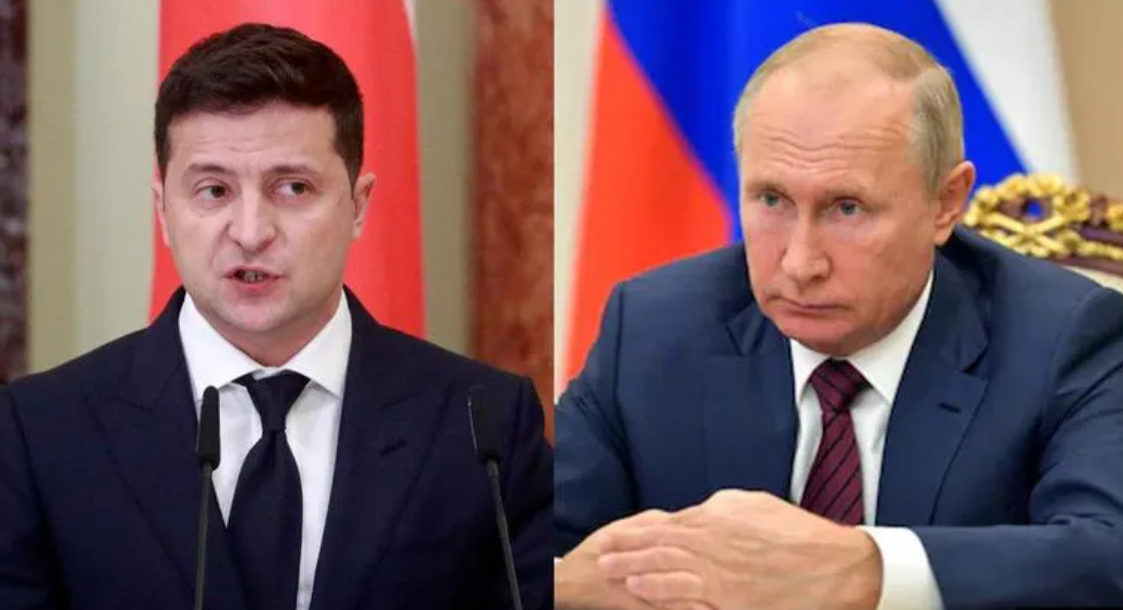Tue Mar 08, 2022
Tuesday / March 8
Putin's demands
Dmitry Peskov, spokesman for Russian Federation President Vladimir Putin, said on Monday that Moscow was ready to halt "military operations at a moment's notice" if Kyiv complied with a set of conditions.
Justifying Russia's attack on Ukraine, Peskov stated that Moscow conveyed these conditions to Kiev as well.
According to Peskov, Russia demanded that Ukraine end its military action, change its constitution to guarantee neutrality, recognize Crimea as Russian territory, and recognize the separatist republics of Donetsk and Lugansk as independent states.
"We will disarm Ukraine. We will finish it. But the main thing is that Ukraine stops its military action. They must stop their military action, then no one will shoot," said Peskov.
"They should make changes to the constitution so that Ukraine rejects any bid to enter a bloc," Peskov told Reuters by phone on neutrality.
"We are not the ones who have captured Lugansk and Donetsk from Ukraine. Donetsk and Lugansk do not want to be part of Ukraine. But this does not mean that they should be destroyed as a result. For the rest, Ukraine will live as it wishes only under conditions of neutrality as an independent state,” he said.
Legal pressure on Russia at the UN
Ukraine has asked the United Nations' highest court to issue an emergency order to stop Russian aggression on its territory.
Russia did not send a legal representative to the hearing held at the International Court of Justice. In its application to the court, Ukraine argued that Russia wrongly invoked the genocide law to justify its invasion.
The court said it regretted Russia's failure to attend the hearing, saying it would start negotiations and make a decision "as soon as possible".
Countries usually, but not always, comply with legally binding court orders. After the trial, Ukrainian ambassador Anton Korynevych stressed that Moscow would have to comply with any court order.
Russian oil embargo
US legislators outlined the bipartisan legislation on Monday banning the import of Russian oil into the US.
Republicans and Democrats in the House of Representatives and Senate committees overseeing trade want to tighten the economic pressure on Russian President Vladimir Putin's invasion of Ukraine.
The White House said President Biden has yet to make a decision on the matter.
The House of Representatives can vote on the bill as early as Wednesday.
Russian Deputy Prime Minister Novak claimed that the embargo on Russian oil would increase oil to $300 per barrel.
Iran talks
The senior representative of the European Union Enrique Mora who coordinated the Vienna talks said it was now time for political decisions.
Iran's chief negotiator, Ali Bagheri Kani, returned to Tehran on Monday from Vienna for political consultations with the government.
Parties involved in talks between world powers in Tehran and Vienna said last week that an agreement is expected to be reached within a few days.
US stocks
U.S. stocks fell again on Monday as investors worried that higher energy prices from the Russia-Ukraine conflict would slow the economy and boost inflation.
The Dow Jones Industrial Average closed at 32,817.38, down 797.42 points, down nearly 8% on American Express.
The S&P500 slumped close to 3% to 4,201.09 and fell into the correction zone. The 500-stock average is 12% behind the record close. The Nasdaq Composite Index fell 3.6% to 12,830.96 and is in bear market territory, more than 20% off the all-time close.
As the Russia-Ukraine war continues, investors are watching the potential economic consequences of cuts in global energy supply.
